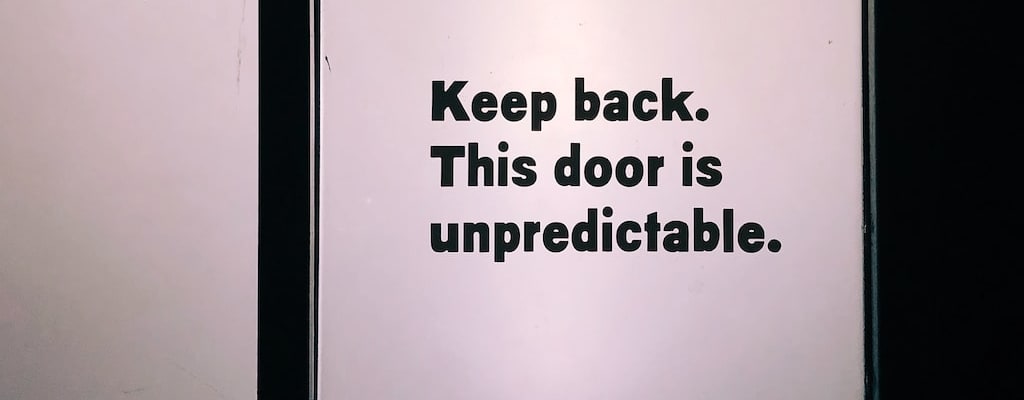that’ll be the day: Idiom Meaning and Origin
What does ‘that'll be the day’ mean?
The idiom that'll be the day is used to express strong skepticism or doubt towards a stated or implied future event, implying that it is highly unlikely or impossible to happen.

Idiom Explorer
The idiom "that's your lot" means that something has come to an end or there is nothing more to be expected or offered. It can be used to express that there is no more of something or that there is no further opportunity or possibility.
The idiom "that's what she said" is a humorous phrase used to draw attention to statements that can be interpreted with a sexual innuendo or double entendre. It can be seen as a form of wordplay or a way to add a humorous twist to a conversation, often used in a lighthearted or joking manner.
The idiom "that's the thing" is used to emphasize a crucial point or argument in a discussion or conversation.
"That's that on that" means that something has been decided or concluded definitively, leaving no room for further discussion or debate.
The idiom 'that's that' is used to conclude a discussion or resolve a situation, implying that nothing more needs to be said or done about it. It signifies finality and closure.
The idiom "that's saying something" is used to highlight a statement that is particularly noteworthy or impressive, often because it exceeds expectations or goes against common assumptions.
The idiom "that's done it" is used to indicate that something has reached a critical or irreversible point, often referring to a negative outcome or consequence. It implies that a particular action or event has brought about a significant change that cannot be undone.
The idiom "that figures" is used to express that something is not surprising or unexpected, as it is consistent with what was already known or expected.
The idiom "tempt fate" means to take unnecessary risks or challenge the possibility of something bad happening.
Fascinating Origins: Unlikely Future Scenarios
Idiom: That'll Be the Day
The idiom "that'll be the day" is a commonly used phrase in English that expresses skepticism or disbelief towards a future event or possibility. It originated from the popular song "That'll Be the Day" released in 1957 by Buddy Holly and the Crickets. The phrase is often used sarcastically or mockingly, emphasizing the speaker's doubt or lack of faith in whatever is being suggested. It implies that the mentioned event or outcome is highly unlikely or improbable, and the speaker does not anticipate it actually happening.
The idiom "that'll be the day" can be directly traced back to the chorus of Buddy Holly's song, where he sings the line "That'll be the day when I die." This song reached number one on the Billboard charts and became a significant hit, contributing to the phrase's widespread adoption in colloquial language.
Over time, "that'll be the day" has evolved beyond its association with Buddy Holly's song and now stands as a standalone idiom with a broader meaning. It has become a versatile phrase, applicable in various contexts to convey doubt, skepticism, or dismissal.
When someone uses the idiom "that'll be the day" in conversation, it is important to consider the context and non-verbal cues to fully understand the speaker's intent. While it typically signifies skepticism, the specific tone and accompanying body language can indicate if it is intended humorously, ironically, or in a more serious manner.
"That'll be the day" is a quintessentially English phrase that has permeated colloquial language and continues to be employed in various contexts. Its popularity persists, reminding us of the endless possibilities that language holds.
Idiom: chance'd be a fine thing
"Chance'd be a fine thing" is a related idiom often used in response to unrealistic or unlikely suggestions. This phrase sarcastically implies that the mentioned event or outcome is highly improbable and is unlikely to happen in reality. It is similar in meaning to "that'll be the day", as both express skepticism or disbelief towards a future event or possibility.
The idiom "chance'd be a fine thing" can be thought of as a more colloquial variation of "that'll be the day", with a slightly different phrasing. It is often used in a jocular or teasing manner to dismiss ideas or proposals that the speaker deems unrealistic or unlikely to come to fruition.
Just like "that'll be the day", "chance'd be a fine thing" highlights the speaker's doubt or lack of belief in the mentioned event happening. It serves as a humorous way to express skepticism while adding a touch of sarcasm or irony to the conversation.
Idiom: cold day in Hell
The idiom "cold day in Hell" is another expression that conveys disbelief or skepticism towards a future event or possibility. It is used to emphasize the extreme unlikelihood or impossibility of something happening.
Similar to "that'll be the day" and "chance'd be a fine thing", "cold day in Hell" uses figurative language to suggest that the mentioned event is highly improbable, to the point where even a freezing cold day in the fiery depths of Hell would be more likely to occur.
When someone says "it'll be a cold day in Hell", they are expressing utter skepticism or disbelief in the mentioned event or outcome. It is often used in a playful or humorous tone to dismiss unrealistic ideas or suggestions.
"Cold day in Hell" and "that'll be the day" share a common theme of conveying doubt or disbelief towards a future event or possibility. Both idioms use figurative language to highlight the improbability of the suggested outcome, adding a touch of humor and sarcasm to the conversation.
Idiom: a cold day in July
"A cold day in July" is a related idiom that also expresses extreme improbability or unlikelihood. It is a variation of the idiom "cold day in Hell" and is used to emphasize the impossibility of a certain event happening.
When someone says "it'll be a cold day in July", they are expressing the notion that the suggested event is so improbable that even a freezing cold day in the height of summer would be more likely to occur.
This idiom, like the others mentioned, is often used in a playful or sarcastic manner to dismiss unlikely ideas or suggestions. It conveys a strong sense of disbelief and highlights the speaker's doubt that the mentioned event will ever happen.
Idiom: smart chance
"Smart chance" is a related idiom that conveys skepticism or disbelief towards a future event or possibility. It is often used as a dismissive response to suggestions that the speaker deems unlikely or unrealistic.
This idiom, similar to "that'll be the day" and "chance'd be a fine thing", demonstrates the speaker's lack of faith or belief in the mentioned event happening. It suggests that the chances of the suggested outcome are so slim or improbable that it would be foolish or unwise to consider them seriously.
When someone says "smart chance", they are essentially saying that the proposed event or possibility is highly unlikely and not worth investing any hope or expectation in.
"Smart chance" is a straightforward and concise way to express doubt or disbelief towards a future event. Its use can range from a light dismissal of an unrealistic idea to a more serious expression of skepticism and incredulity.
Example usage
Examples of how the idiom "that'll be the day" can be used in a sentence:
- "If John ever says he's going to clean his room, that'll be the day!"
- "Oh, you think Tom will finally admit he was wrong? That'll be the day!"
- "You're expecting Sarah to apologize for what she did? That'll be the day!"
More "Expectations" idioms

